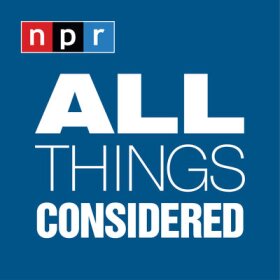
On May 3, 1971, at 5 p.m., All Things Considered debuted on 90 public radio stations.
In the more than four decades since, almost everything about the program has changed, from the hosts, producers, editors and reporters to the length of the program, the equipment used and even the audience.
However there is one thing that remains the same: each show consists of the biggest stories of the day, thoughtful commentaries, insightful features on the quirky and the mainstream in arts and life, music and entertainment, all brought alive through sound.
All Things Considered is the most listened-to, afternoon drive-time, news radio program in the country. Every weekday the two-hour show is hosted by Ailsa Chang, Mary Louise Kelly, Ari Shapiro and Juana Summers. In 1977, ATC expanded to seven days a week with a one-hour show on Saturdays and Sundays, which is hosted by Michel Martin.
During each broadcast, stories and reports come to listeners from NPR reporters and correspondents based throughout the United States and the world. The hosts interview newsmakers and contribute their own reporting. Rounding out the mix are the disparate voices of a variety of commentators.
>> Visit the All Things Considered website for more detailed program information.
-
The Trump administration is proposing massive changes to the Federal Emergency Management Agency. We asked disaster experts to weigh in.
-
Vermont-trained cross-country star Jessie Diggins claims bronze, medaling in third straight OlympicsShe's done it again. Jessie Diggins, age 34 and skiing in her final Olympics, captured a bronze medal for the U.S. at the Milan Cortina Games. She battled through the pain from injured ribs to reach the podium.
-
Jessie Diggins, age 34, helped break an Olympic medal drought for American cross-country skiers that dated back to the 1970s. In her final season, she enters the Milan Cortina Olympics on a winning streak and with new peace of mind.
-
A suite of pro-EV federal policies have been reversed. Well-known vehicles have been discontinued. Sales plummeted. But interest is holding steady.
-
More than two dozen Democratic state leaders are suing the Department of Agriculture after the Trump administration said it would not use contingency funds to pay SNAP benefits during the shutdown.
-
The Trump administration says it has started the process of issuing "substantial" reduction-in-force notices to federal employees. Court filings suggest around 4,200 affected so far.
-
The decades-old radical troupe Bread and Puppet, famed for its protest art including giant puppets, is touring again — mixing circus, politics and bread in a sharply polarized moment.
-
Transportation Secretary Sean Duffy says he doesn't agree with federal subsidies for high-speed EV chargers, but that his department "will respect Congress' will" and release the funds.
-
Inflation remained elevated last month as President Trump's tariffs continued to make their way into the prices that consumers pay. The average cost of living in July was up 2.7%.
-
It was 35 years ago this month that the Americans with Disabilities Act was signed into law. Across the U.S., it's being marked with festivals and parades — and concern due to recent Medicaid cuts.










